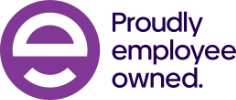Key element: how well you prepare.
It’s not possible to anticipate every question that will be asked. It is entirely possible (and advisable) to enter your interview with a strong sense of what to expect and how to approach each question!
Here are 5 tips to help you feel confident and prepared for both a normal interview and a competency based interview:
Normal Interview preparation tips:
1. Research the Company
Doing thorough research on the company you are applying to will put you head and shoulders above your competition. When you go into your interview with a firm knowledge of the company and the potential role you will be filling, you’ll be able to answer questions in a much more tailored and targeted way.
Things you should research:
- The product or service – ensure you have a basic understanding
- The role – read the job description, the responsibilities and understand what they expect of you
- Personality – check out their social media pages and blogs so you can get an idea of their company culture
2. Prepare Answers to Common Questions
We’ve all been there… some interviews contain notoriously dreaded questions like, “what is your greatest weakness?”, however with some preparation these questions shouldn’t be anything to fear about.. It’s important to be succinct, specific, and honest in your replies, but don’t overthink it.
Jot down some bullet point responses to the most commonly asked interview questions and rehearse them so they are fresh in your mind when the day of the big interview comes.
Here are some questions you may encounter during your interview:
- Tell us about yourself
- What are your greatest strengths?
- Greatest weaknesses?
- Describe your work history
- Why are you interested in this position/working for this company?
- Why are you looking now? Or Why did you leave your last job?
- When is a time you failed and how did you respond?
- Where do you see yourself in 5 years?
3. Know Your Values and Ask Questions
Self-awareness is one of the most important and most sought-after competencies to have in the workplace. Spending some time in reflective introspection about the career choices you have made will give you a good idea of the things you value in your working like.
Make note of the questions you would like to ask about the company and a workplace culture that are important to you. These questions should range from what tools or software they use, to company policies.
4. Know your skills and be prepared to bring them to the table
Many people become uncomfortable at the idea of “selling themselves,” but presenting yourself in your best light does not have to feel gimmicky or disingenuous. The fact is, you do have skills and experiences that set you apart and it is completely acceptable to acknowledge that about yourself.
It’s important when preparing for the interview, that you know how your skillsets will translate to your job and how it will help contribute to the overall goals of the department.
5. Prepare with Mock Interviews
Practice is THE best way to polish your presentation skills and increase your confidence. Make sure you practice your interview answers by speaking out loud. No matter how much you read it over in your head and how good it sounds, it may not necessarily flow when saying it.
Practice makes perfect!
Competency Based Interview preparation:
What is Competency Based Interviews? Competency-based interviews (also called structured interviews) are interviews where each question is designed to test one or more specific skills. The answer is then matched against pre-decided criteria and marked accordingly. For example, the interviewers may want to test the candidate's ability to deal with stress by asking first how the candidate generally handles stress and then asking the candidate to provide an example of a situation where he worked under pressure.
Bain and Gray and many other companies are now doing more and more competency based interviews so it's really important that you prepare for this. We advise that you follow the steps of preparing for a normal interview, however applying the STAR technique – Situation, Task, Action, Result.
Grab a friend, and practice a mock interview answering potential questions an employer may ask you. Here’s how to use the acronym to stage your responses:
- Situation: Set the scene and context for the interviewer.
- Task: What was your challenge?
- Action: What did you do to overcome said challenge?
- Result: Highlight a positive outcome, drawing on how your action impacted it
Questions that an employee could potentially ask you?
- Tell us about a situation where your communication skills made a difference to a situation?
- Give me an example where your listening skills proved crucial to an outcome
- How do you feel writing a report differs from preparing an oral presentation?
- Describe a situation where you needed to influence different stakeholders who had different agendas. What approaches or strategies did you use?





